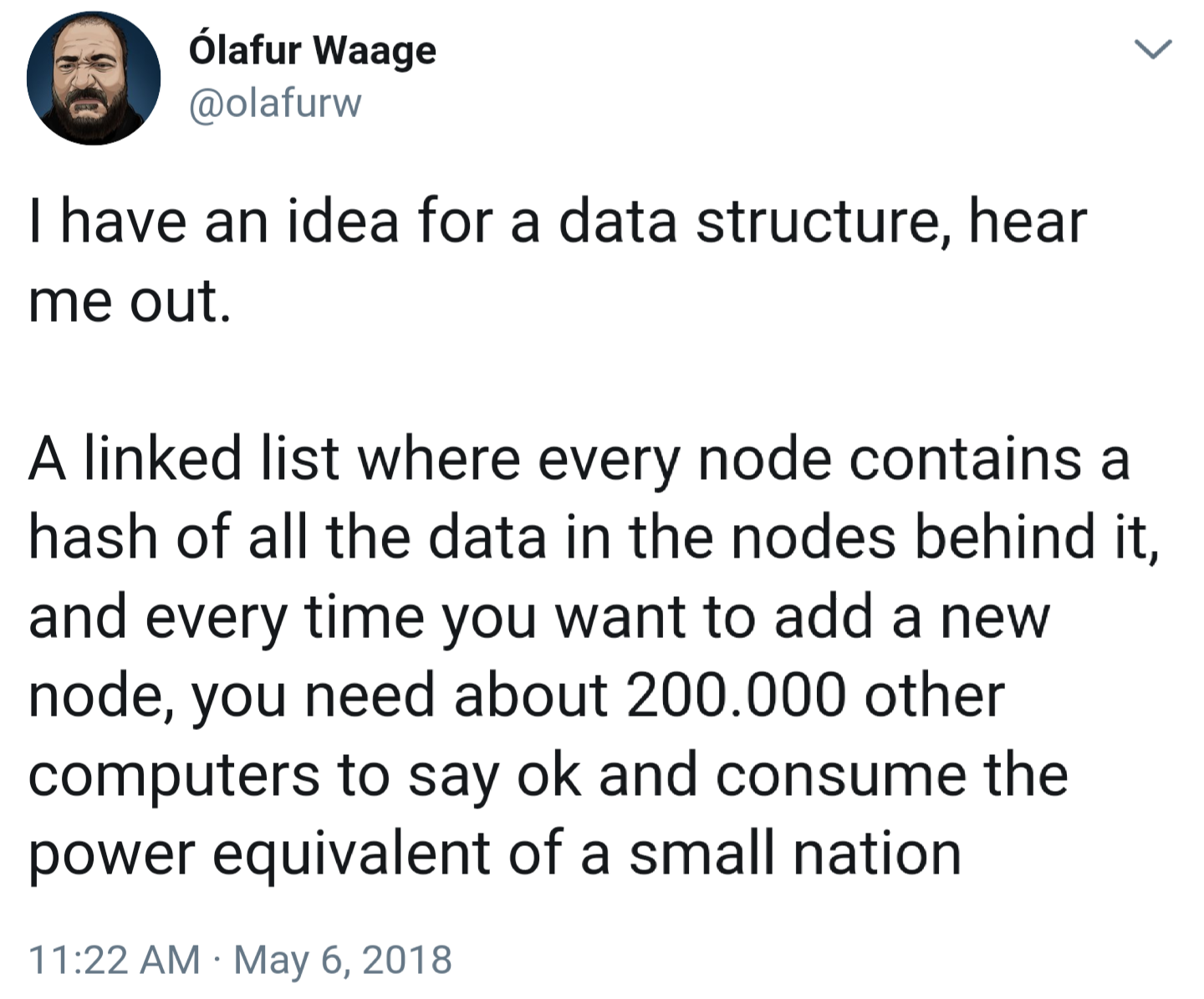this post was submitted on 02 Feb 2024
1889 points (96.5% liked)
Memes
45655 readers
1695 users here now
Rules:
- Be civil and nice.
- Try not to excessively repost, as a rule of thumb, wait at least 2 months to do it if you have to.
founded 5 years ago
MODERATORS
you are viewing a single comment's thread
view the rest of the comments
view the rest of the comments

No, I'm referring to how ETC came about as the result of a huge scam that caused the whole Ethereum project to be forked. The original Ethereum was supposed to be immutable, but this conflict clearly showed that wasn't true, and there were still people pulling the strings who were too big to fail.
Not anything new to someone who's very familiar with the project, but emblematic of the promise of crypto vs the actual product.
Then I guess you misunderstand that the hard fork resulting from the DAO hack was the result of consensus of the network participants, not a unilateral action taken by the Ethereum foundation. Indeed, the protocol facilitated that's the only way it could happen.
The historic source code is still hosted, if you think ETH devs have the ability to 'edit whatever they want' then you should be able to point to the lines of code where that ability is afforded to them. Or someone should, 8 years should have been enough time to have a flick through.
Your anti-ETH comment came across as an anti-ETC comment to me, that's why I responded. I stand with you in disagreement with the 2016 hard fork. Mostly because many people would lose money anyway, and did. ETH corrected 50+%.
ETC is literally the original chain, sans Ethereum foundation's branding (which is why your reference to it confused me). Founding members left and continued to support ETC, and went on to found other foundations with a basis in academic rigor, which formed the fundamental basis of the ideological disagreement between participants.
You said this showed ETH/ETC devs have a 'kill switch in their back pocket', but the part of Ethereum that was 'killed' is alive and much larger than it was in 2016.
My point wasn't for or against any particular chain. It was just pointing out that crypto isn't really immutable when applied to real use cases, and is only as decentralized and democratic as power brokers in the space want it to be.
I'm pointing out that the DAO hack transactions are not muted on ETC, they still exist as transactions in a validated block on that chain. Whether its state of mutability exists in binary or on a spectrum, ETC is shown to be immutable using your criteria, further showing that it's not as simple as "crypto isn't really immutable". Different chains, even directly originating from the same project, have different characteristics with respect to mutability. It's not to say that ETH is worse and/or better than ETC, or that either of them are good, it's just what's been observed as a matter of record, contrary to your depiction
My point is that in a mass-adoption scenario where blockchains are controlled by large entities, they will absolutely use these characteristics to their advantage, and because of how crypto is structured it will be much more oppressive and favored towards existing powers than more traditional methods that allow for greater flexibility and a more diverse set of use cases. That's why some of the biggest holders of crypto are the same corporations that caused the '08 subprime loan crash.
Agreed, but consider this: centralisation in this context is intended to refer to the distribution of power and control toward any authority or party, including entrenchment of VC. It's definitely a valid point for something like Solana, less so for Ethereum I feel. At a certain point, the sum of involved interests are simply too disparate to be utilised together toward some nefarious end. Of course, robust on-chain community governance is critical for anything that wants to push beyond the microcap experiment stage that Ethereum was in during 2016.